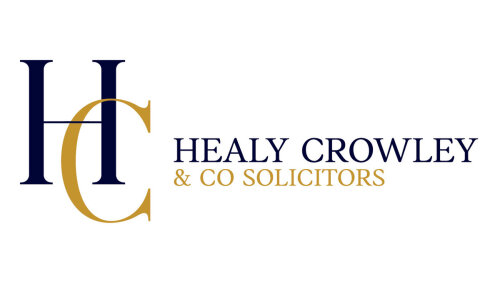Best Corporate Governance Lawyers in Ireland
Share your needs with us, get contacted by law firms.
Free. Takes 2 min.
Or refine your search by selecting a city:
List of the best lawyers in Ireland
About Corporate Governance Law in Ireland
Corporate governance refers to the systems, practices, and processes by which companies are directed and controlled. In Ireland, corporate governance law establishes the framework to ensure that businesses operate in a responsible, ethical, and transparent manner. The principles of corporate governance protect the interests of shareholders, stakeholders, employees, and other parties by promoting accountability and sound decision-making within organizations. Irish corporate governance standards are guided by both domestic legislation and international best practices, shaping how companies are managed and overseen.
Why You May Need a Lawyer
Engaging a lawyer in corporate governance matters is vital for ensuring compliance and minimizing risk. Here are common situations where legal help is often required:
- Setting up new companies and establishing governance structures
- Ensuring compliance with the Companies Act 2014 and related regulations
- Drafting or amending constitutional documents and policies
- Advising directors and officers on their legal duties and responsibilities
- Navigating conflicts of interest or disputes among directors or shareholders
- Providing guidance during mergers, acquisitions, or restructuring
- Addressing breaches of directors' duties or shareholder agreements
- Responding to regulatory investigations or enforcement actions
- Advising on best practices for board meetings and record keeping
- Implementing governance for subsidiaries or group structures
A lawyer ensures your company not only meets legal requirements but also implements robust governance frameworks to support long-term success.
Local Laws Overview
Ireland's corporate governance landscape is shaped primarily by the Companies Act 2014, which consolidates and modernizes Irish company law. Key considerations include:
- Directors' Duties: Directors must act in good faith in the interests of the company, exercise care, skill, and diligence, avoid conflicts of interest, and comply with statutory obligations.
- Company Constitution: The constitution defines the company's governance structure and operational rules. Amendments must follow specific procedures under law.
- Board Structure and Function: Boards govern strategic direction and oversight. Larger public companies often adopt additional governance codes, such as the UK Corporate Governance Code.
- Disclosure and Transparency: Companies have obligations regarding annual filings, financial statements, and disclosing information to members and the Companies Registration Office.
- Shareholder Rights: Shareholders have legal rights concerning meetings, voting, dividends, and access to company information.
- Risk Management and Internal Controls: Companies are expected to have mechanisms to identify, manage, and report risks.
- Regulatory Oversight: The Office of the Director of Corporate Enforcement (ODCE) enforces corporate law compliance, investigating breaches and taking enforcement action where necessary.
Frequently Asked Questions
What is the role of a company director under Irish law?
Company directors are responsible for managing the company's business and affairs. They must act in the best interests of the company, comply with statutory duties, and exercise care, skill, and diligence in carrying out their roles.
What are the main sources of corporate governance rules in Ireland?
The primary sources include the Companies Act 2014, the company’s constitution, and, for listed companies, voluntary codes such as the UK Corporate Governance Code and Central Bank regulations.
Are all companies in Ireland required to comply with the same governance standards?
No, requirements vary depending on company type and size. Public limited companies and listed entities are subject to stricter governance requirements than private limited companies.
How often must Irish companies hold board meetings?
There is no statutory requirement on frequency, but most constitutions specify details. Best practice suggests regular meetings to fulfill directors’ duties and maintain proper records.
What are the key statutory duties of directors?
Duties include acting in good faith for the benefit of the company, exercising due care and diligence, avoiding conflicts of interest, and complying with legal and reporting obligations.
How can conflicts of interest be managed?
Directors must declare any personal interest in company transactions. The company may require conflicted directors to abstain from related decisions or discussions.
What reporting and disclosure obligations do companies have?
Companies must file annual returns and audited accounts with the Companies Registration Office. Certain transactions and changes require prompt notification to ensure transparency.
Can directors be held personally liable for governance failures?
Yes, directors can face personal liability and sanctions for breaches of duty, including fines, compensation orders, or being disqualified from acting as a director.
What role do shareholders play in corporate governance?
Shareholders have rights to participate in key decisions, attend meetings, vote on important matters, and hold directors accountable for management of the company.
Is there a regulator overseeing corporate governance in Ireland?
Yes, the Office of the Director of Corporate Enforcement (ODCE) monitors and enforces company law compliance. The Central Bank of Ireland oversees governance for regulated financial service providers.
Additional Resources
For further information and assistance, consult the following Irish entities and resources:
- Companies Registration Office (CRO) - responsible for company filings and information
- Office of the Director of Corporate Enforcement (ODCE) - enforcement of company law and governance standards
- Irish Stock Exchange (Euronext Dublin) - governance codes for listed companies
- Irish Business and Employers Confederation (IBEC) - supports business best practices
- Law Society of Ireland - lists qualified legal practitioners and resources
- Central Bank of Ireland - oversees governance in the financial sector
- Chartered Accountants Ireland - guidance on financial governance
Next Steps
If you need legal advice or assistance with corporate governance in Ireland, consider the following steps:
- Identify your company's specific governance challenges or needs
- Gather all relevant company documents such as your constitution, minutes, and filings
- Research recommended local legal experts or seek referrals from trusted business networks
- Contact qualified solicitors or law firms specializing in corporate governance
- Prepare a summary of your situation or specific questions for your initial consultation
- Review all advice carefully and implement recommended governance changes accordingly
Proper legal support ensures compliance, reduces potential risks, and fosters a transparent, resilient governance culture within your organization.
Lawzana helps you find the best lawyers and law firms in Ireland through a curated and pre-screened list of qualified legal professionals. Our platform offers rankings and detailed profiles of attorneys and law firms, allowing you to compare based on practice areas, including Corporate Governance, experience, and client feedback.
Each profile includes a description of the firm's areas of practice, client reviews, team members and partners, year of establishment, spoken languages, office locations, contact information, social media presence, and any published articles or resources. Most firms on our platform speak English and are experienced in both local and international legal matters.
Get a quote from top-rated law firms in Ireland — quickly, securely, and without unnecessary hassle.
Disclaimer:
The information provided on this page is for general informational purposes only and does not constitute legal advice. While we strive to ensure the accuracy and relevance of the content, legal information may change over time, and interpretations of the law can vary. You should always consult with a qualified legal professional for advice specific to your situation.
We disclaim all liability for actions taken or not taken based on the content of this page. If you believe any information is incorrect or outdated, please contact us, and we will review and update it where appropriate.
Browse corporate governance law firms by city in Ireland
Refine your search by selecting a city.

















